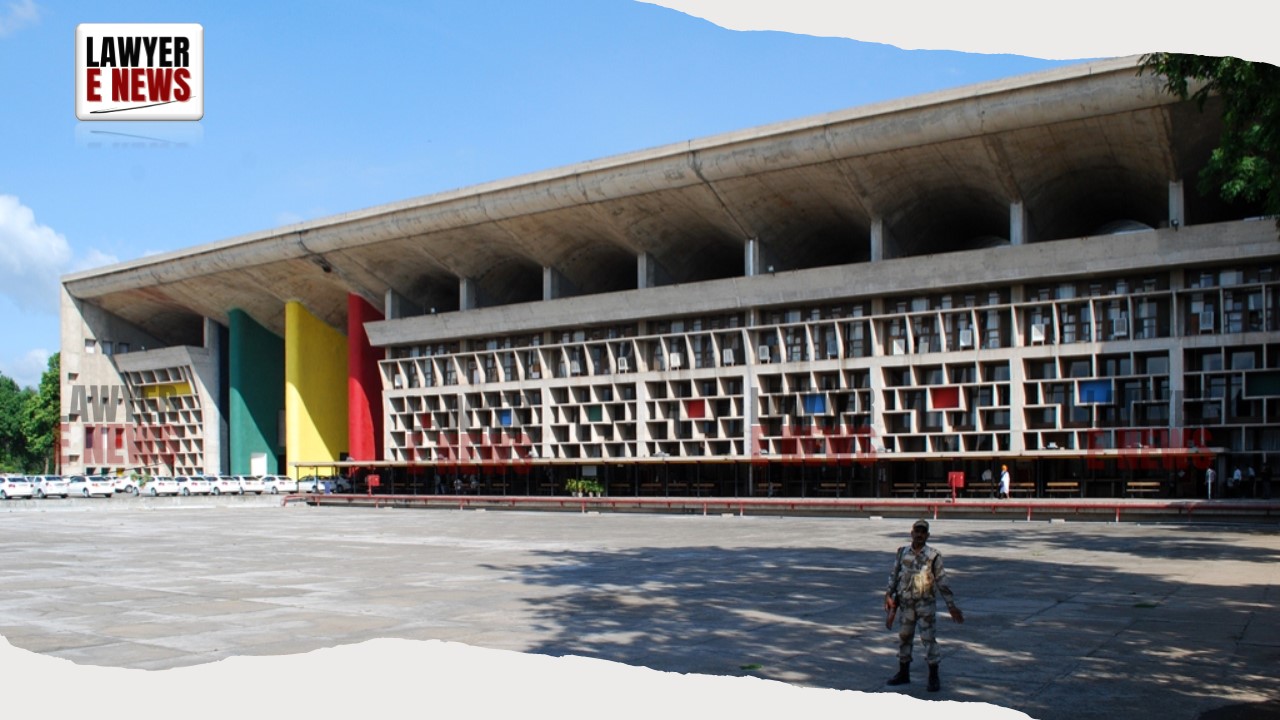-
by Admin
15 February 2026 5:35 AM



“Work-charged service cannot be equated with regular employment” – Punjab and Haryana High Court dismissed a petition by Prem Lata, widow of a work-charged employee, who sought financial and pensionary benefits, including family pension and benefits under the Assured Career Progression (ACP) Scheme. The Court, in a bench comprising Justice Sureshwar Thakur and Justice Sudeepthi Sharma, held that work-charged service does not qualify for regular employment benefits under established service law, reaffirming that work-charged employees are not entitled to financial benefits afforded to regular employees.
Prem Lata’s husband, Ram Naresh, had served as a work-charged Chowkidar with the Union Territory of Chandigarh, with his tenure deemed regularized one day before his passing in 2003. Following his death, Lata applied for benefits including family pension, leave encashment, fixed medical allowance, local travel concession (LTC), and ACP benefits, claiming her husband’s “deemed” regularization entitled her to such benefits. Her petition followed earlier proceedings in which she had unsuccessfully sought these benefits through representations and an initial application to the Central Administrative Tribunal (CAT).
The Court reiterated that work-charged employees are hired for specific projects with employment ending upon project completion, meaning they do not receive the same benefits as regular employees. Citing the Supreme Court in Punjab State Electricity Board v. Jagjiwan Ram (2009), the Court noted that benefits under schemes like the ACP are strictly for regular employees who complete years of "regular service," a status not attributed to work-charged employees.
"The service of a work-charged employee is distinct from regular service, and absent specific statutory provision, cannot be counted towards benefits such as pension, ACP, or other regular employment benefits."
Justice Sudeepthi Sharma clarified that even though Ram Naresh’s service was deemed regularized on October 4, 2003—one day before his death—this posthumous designation did not retroactively alter his service status to qualify for pension or ACP benefits. The Court emphasized that without actual regular service, the petitioner’s husband was not eligible for pensionary benefits.
Judicial Observation: "The petitioner cannot claim ACP benefits or pension merely on account of deemed regularization without satisfying the prerequisite of actual, regular service.”
The Court observed that Lata’s petition was filed many years after her husband’s death and did not justify this delay adequately. The Court ruled that such delay renders the claim untenable, as public policy and judicial discretion do not favor stale claims that disrupt settled employment arrangements.
Case Cited: The ruling referenced State of Punjab v. Ishar Singh (2002) to emphasize that procedural deficiencies and untimeliness can bar judicial relief, particularly where government benefits and established employee classifications are at issue.
Reaffirming legal precedents, the Court maintained that work-charged employees constitute a distinct employment category not comparable to regular employees. Therefore, their service terms and benefits differ significantly. Relying on State of Haryana v. Haryana Veterinary & AHTS Association (2000), the Court ruled that no parity exists between regular employees and those in work-charged roles for benefits such as ACP or leave encashment.
Quote from the Judgment: “The clear distinction between work-charged and regular employees is pivotal to the denial of benefits meant solely for regular cadre, as work-charged employees lack the requisite continuity and regular status.”
On Deemed Regularization and ACP Benefits: “Deemed regularization does not entitle a work-charged employee to ACP or pension benefits without actual years of regular service.”
On the Judicial Policy Against Stale Claims: “The delay in seeking relief, particularly in matters of financial and pensionary claims, erodes the basis for judicial intervention, as it creates administrative disruption and affects settled rights.”
The Court dismissed Prem Lata’s petition, affirming that her husband’s service as a work-charged employee did not qualify her for benefits reserved for regular employees, such as family pension, ACP, and leave encashment. Justice Sharma, in dismissing the petition, emphasized that work-charged service lacks continuity, permanency, and the benefits associated with regular service, and that procedural delays further undermined Lata’s claims.
This ruling underscores the judicial stance on the categorical distinction between work-charged and regular employees, reinforcing that only regular service qualifies for pensionary benefits and other employee benefits such as the ACP. It serves as a precedent discouraging delayed claims, emphasizing that courts will uphold established employee classifications and deny relief when procedural timelines are not respected.
Date of Decision: November 6, 2024
